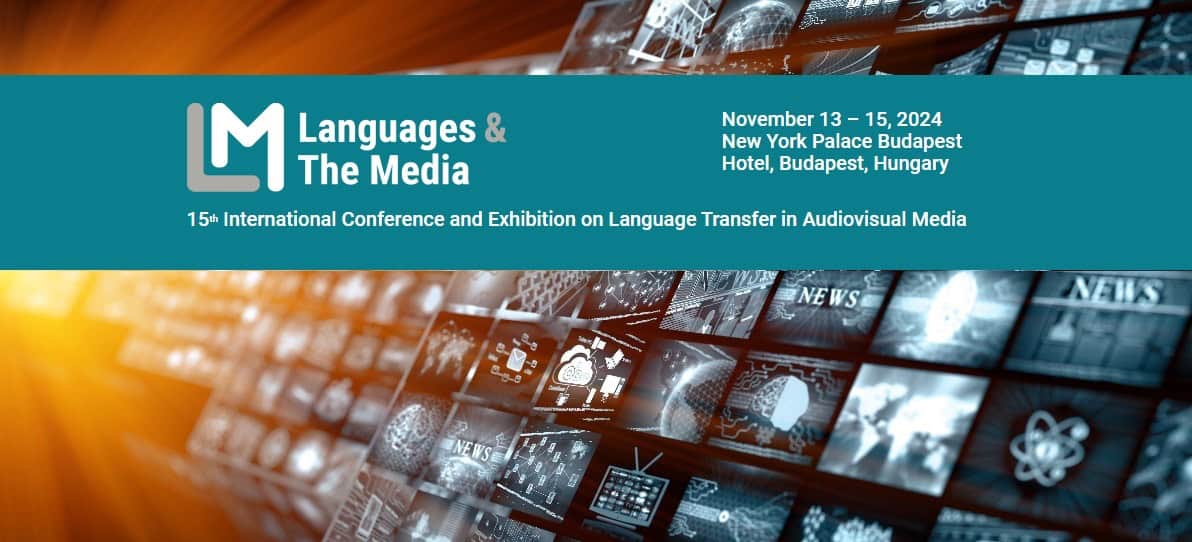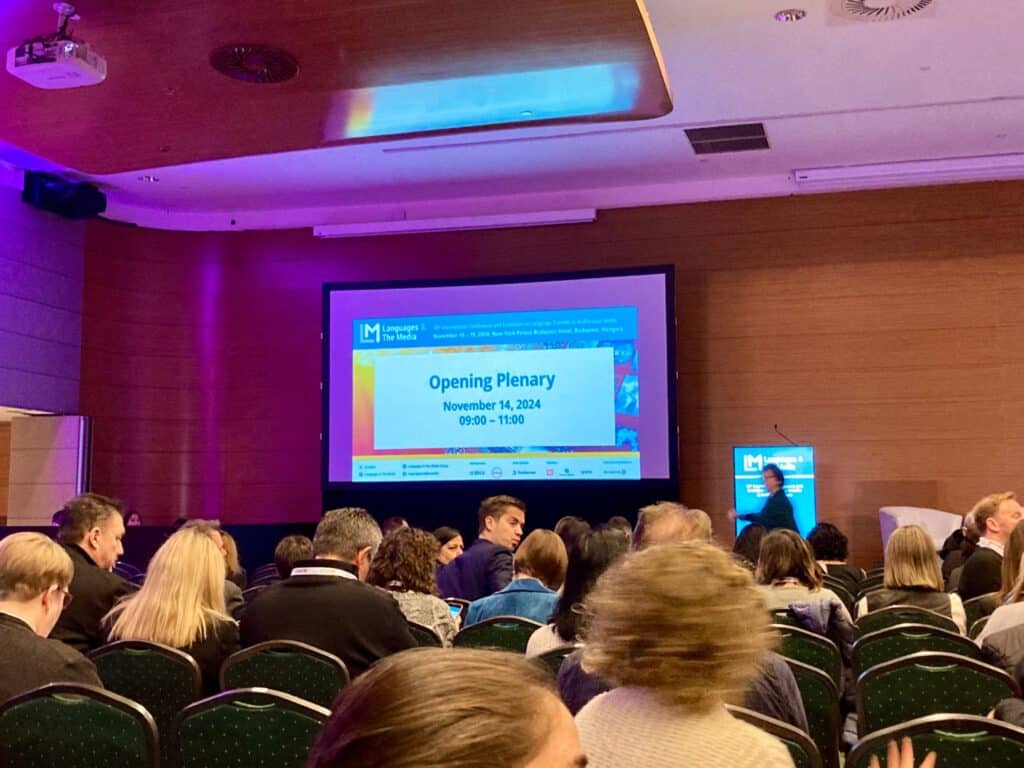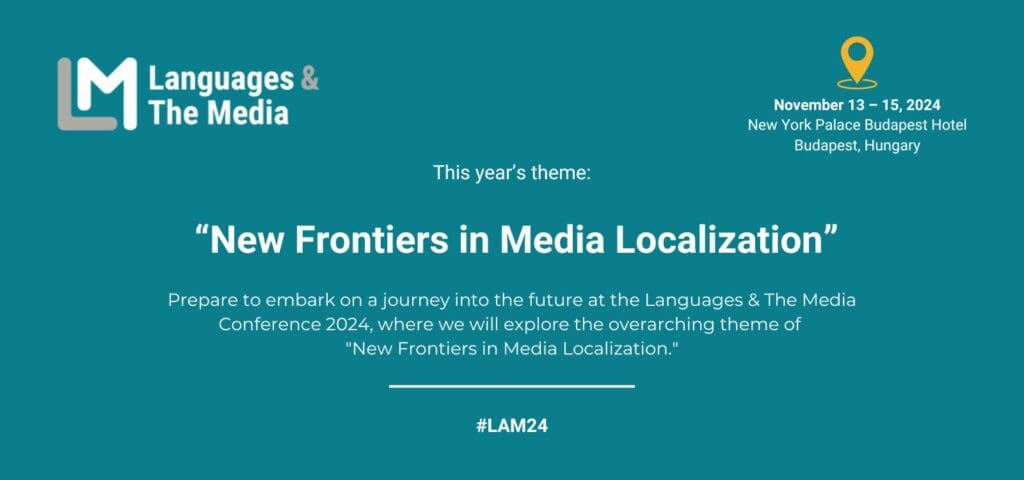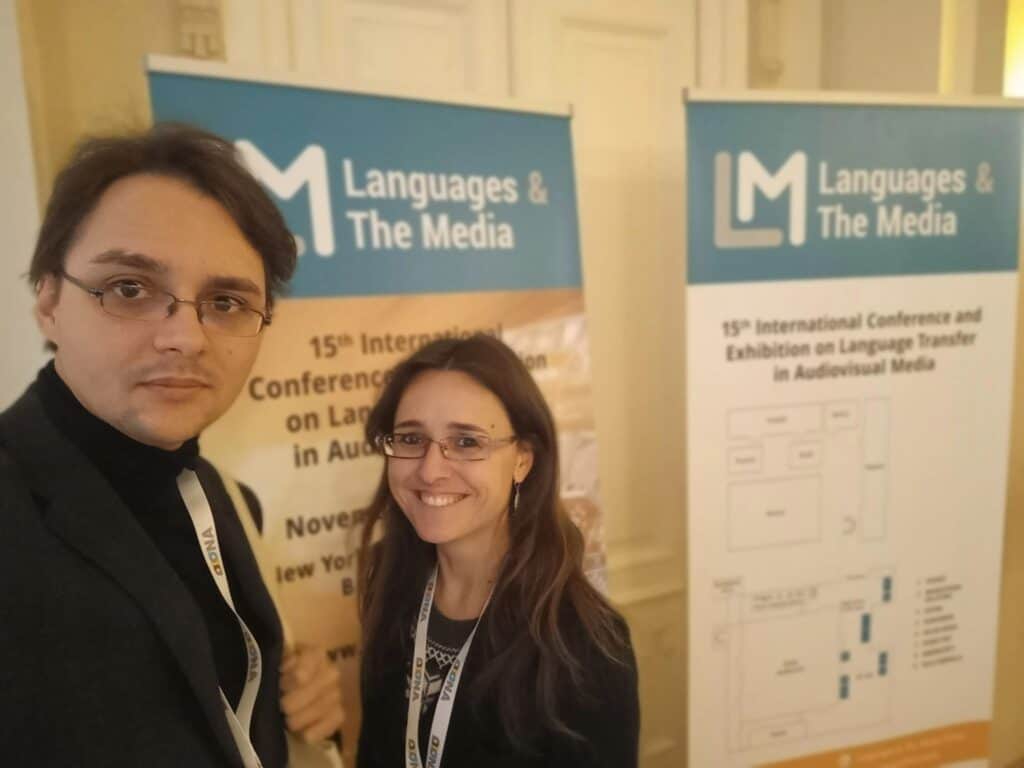
The 2024 Languages & The Media conference in Budapest offered a fascinating look into the future of media localization. Key topics included AI adoption, evolving workflows, and the growing importance of accessibility. Together with experts from around the world, we explored how technology and innovation are transforming the industry—and what this means for localization services like those we provide at PRESTO.




One of the central discussions focused on the role of AI in localization. As highlighted in the “Dubbing at a Crossroads” panel discussion, AI has significant gaps when it comes to handling more creative tasks like script adaptation for dubbing, but can significantly simplify project management and accelerate routine processes.
The experiences of many companies agree that AI can improve workflows and increase efficiency, particularly for the machine translation of subtitles or the quick preparation of metadata. The key is balancing technology with human creativity.
At PRESTO, we focus on a hybrid localization model where AI supports our specialists. This allows us to deliver top-notch quality even for large-scale projects with tight deadlines, such as live broadcast subtitles or the urgent localization of marketing materials.
A discussion on accessibility, led by Mark Harrison of Netflix, underscored the importance of services like audio description and SDH (subtitles for the deaf and hard of hearing). Eye-opening statistics revealed that, as of October 2024, 80% of Netflix users watched content with SDH subtitles. The growing demand for accessible services is evident—not just in Western countries, but also in markets like South Korea, where interest in audio description is rising.
At PRESTO, we’re already prepared for this shift. We offer:
Audio description is a specialized service that uses spoken commentary to describe key visual elements of a film, series, or other video content. This commentary is designed for blind and visually impaired viewers to help them better understand what is happening on screen. It focuses on important details such as character movements, settings, facial expressions, or actions that are not evident from dialogue alone. Audio description makes content more accessible and allows all viewers to enjoy a fully immersive experience.
With the upcoming implementation of the European Accessibility Act, accessibility will not only be a legal requirement, but also a marker of quality and responsibility.
In 2025, thanks to the European Accessibility Act (EAA), accessibility is becoming a key focus—not only for legal compliance but also as an important indicator of quality and corporate responsibility. The directive sets unified standards for product and service accessibility across the EU. For companies, this means ensuring their content is accessible to people with disabilities—through subtitles, audio descriptions, or adapted digital platforms. Accessibility is thus not just an obligation, but also an opportunity to demonstrate a commitment to equal access for all.
Examples from industry leaders like Riot Games illustrate the importance of adapting localization strategies to the dynamic needs of the market. Riot Games developed their own CAT tools for automated translations, while their linguistic teams work directly within player communities to ensure terminology stays up to date.
This flexibility and individualized client focus are core principles we’ve practiced at PRESTO for years:
As they said at the conference, we have to “adapt or perish.” Media localization is moving towards greater AI integration, faster workflows, and a growing emphasis on accessibility. At PRESTO, we believe the key to success lies in combining innovative technologies with the expertise of our seasoned professionals.
Need a partner to ensure the precise localization of your media projects? We’re ready to support you.
